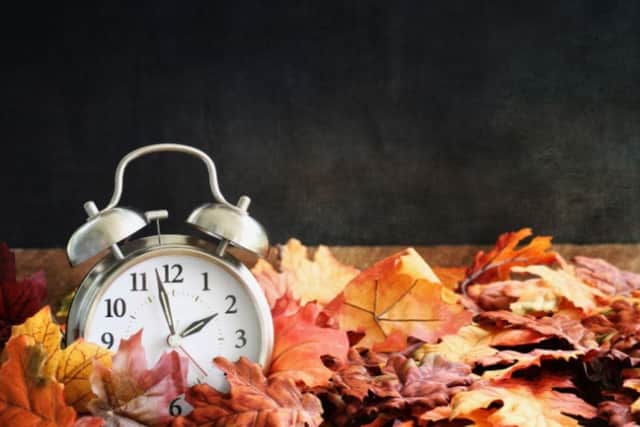Exact date clocks go back in October 2023 as we get an extra hour of sleep - everything you need to know
and live on Freeview channel 276
When do the clocks go back?
The clocks change every October however each year, the dates differ slightly. And this year, it's not far away with the clocks going back on Sunday, October 29. If you're awake, you will notice it will happen at 2am.
Why do they go back?


The UK Government website explains: "In the UK the clocks go forward one hour at 1am on the last Sunday in March, and back one hour at 2am on the last Sunday in October. The period when the clocks are one hour ahead is called British Summer Time (BST).
Advertisement
Hide AdAdvertisement
Hide Ad"There’s more daylight in the evenings and less in the mornings (sometimes called Daylight Saving Time). When the clocks go back, the UK is on Greenwich Mean Time (GMT)."
What the people of Lancashire say to getting an extra hour in bed?
The nights are already getting colder and darker, and it's taking a while for the mornings to brighten up too with many of us leaving for work in the dark and coming back in the dark too.
However, not everyone was best pleased with the decision to put the clocks back in winter and thought it should be scrapped.
One said: “It’s such a backward thing”, while another added: “Doesn’t matter being dark in the morning as still got to get up for work/school but would be so nice to have an extra hour of daylight at the end of the day. So much better for people’s mental health.”
Advertisement
Hide AdAdvertisement
Hide AdOne person for the change said they loved the dark evenings and the spring nights.
What is SAD and how can you manage it?
Seasonal affective disorder (SAD) is a type of depression that comes and goes in a seasonal pattern. SAD is sometimes known as "winter depression" because the symptoms are usually more apparent and more severe during the winter.
Lancashire and South Cumbria NHS Foundation Trust (LSCft) is encouraging staff, service users and the public to speak up, talk to friends, family and ask forsupport as the clocks go back this weekend.
Emma Wood, Cognitive Behavioural Therapist from LSCft’s Talking Therapy service said: “We recognise when the clocks go back this can be a difficult transition for many people and can bring mental health worries to the surface. The lack of sunlight impacts hormone levels leaving some people experiencing feelings of depression which they might not experience at other times of the year.
Advertisement
Hide AdAdvertisement
Hide Ad“There are things we can all do to help combat those feelings. Wrap up warm and take a walk outside during day light hours, make time for a conversation with a friend and talk about how you are both feeling.
"Most importantly ask for help if you need it. Our talking therapies service is available to adults over the age of 16 who are looking for support with a common mental health problem, we don’t have a typical service user as mental health can affect everyone at any time.”
When do they go forward again?
The clocks will change again to go forward on March 31, 2024. On this date, the clock will instead jump forward one hour.
If you are struggling with your mental health throughout winter support is available across Lancashire and South Cumbria.
